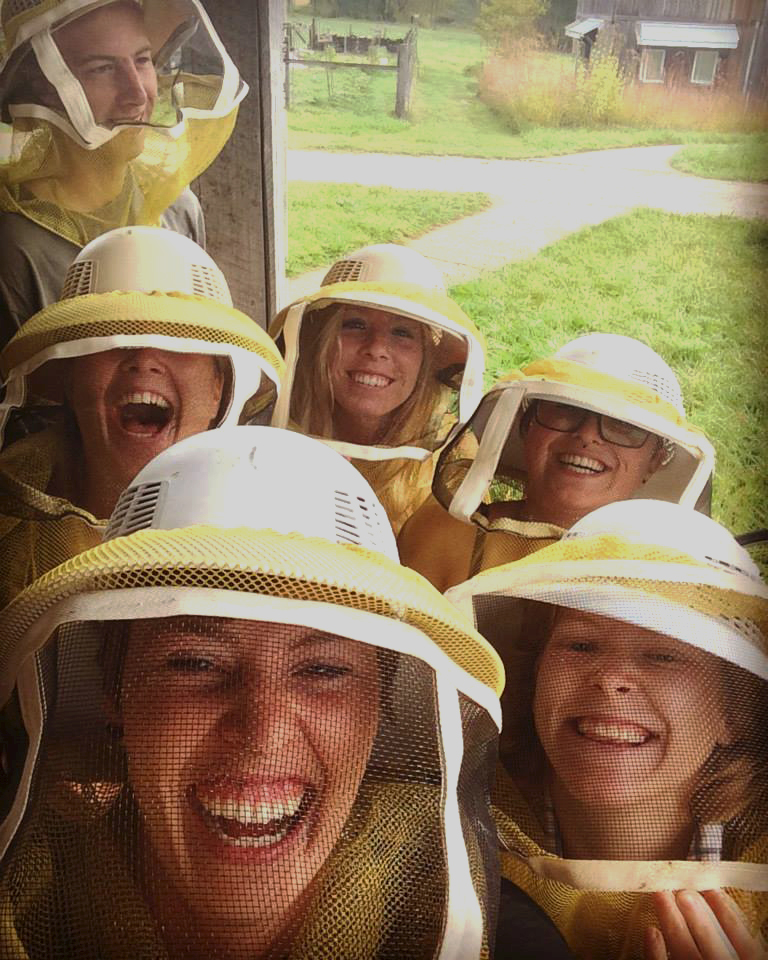This is the third year of operation for the Sustainability Leadership Semester at Merry Lea, where Goshen College students live on campus in Rieth Village and take a set of courses focusing on what people can do to make their communities more economically and ecologically sustainable.
The SLS is open to anyone who wishes to enroll, but it especially serves to complete a concentration in sustainability within GC’s environmental science major. This year there are six participants: senior art major David Pauls, junior peace, justice and conflict studies major Naomi Gross, junior environmental science majors Cecilia Lapp Stoltzfus and Kayla Gray, junior biology major Laura Mason, and junior psychology major Amber Mosley.Mosley said the SLS offered a chance to be closer to nature, and she values the interdisciplinary community, commenting that “the more diverse the people, the more unique ideas, solutions [and] possibilities there are.”
With so many different majors coming together for what most think of as a strictly environmental-science course offering, these students get more than a biology class. They are able to interact with new and different perspectives all day long, inside and out of their classes.
“The SLS was the main thing that caught my eye about the environmental science department at Goshen College. I have been signed up for it since choosing GC,” Lapp Stolzfus said. “Being from Washington, D.C., an opportunity to live in a rural, protected natural area while studying regional environmental issues and their solutions interests me. I enjoy the opportunities to develop really caring and informal relationships with our professors with a student to faculty ratio of six to five.”
Lapp Stolzfus credits professors Lisa Zinn and Tom Hartzell with getting things “exceptionally well organized” for this third group of SLSers, citing the field trips and activities that are planned or encouraged during this semester.
Field trips to local farms, water treatment plants, industrial seed plants and many related businesses and organizations make up a core part of the semester’s learning. One of the activities is a weeklong canoe trip down the Elkhart River, with stops along the way to learn about local ecology and sustainability initiatives.
“We’ve learned about fish ladders and how they help to get salmon across dams, and how native fishing habits have changed due to dams,” Mosley said. “We’ve also learned a bit about the things people do in different counties related to sustainability pertaining to community outreach, and new initiatives that are being considered in South Bend and Michigan, for example.”
Lapp Stoltzfus noted her new knowledge of local water management strategies. “Goshen is the only town/city in the area to have fixed the Combined Sewer Overflow problem,” Lapp Stolzfus said. “All the drinking water for the city of Goshen comes from the Toews River, formed after the last Ice Age. Haven’t heard of it? Well, it flows underground!”
In addition to field trips, the group enjoys participating in “Fun Fridays,” where they learn sustainable life skills. Lapp Stolzfus explained how “last week we harvested honey with Andy Ammons and went on a wild edible hike with Tom Hartzell.”
The courses the students take put them all in the same classroom every day, all day. Then, for meals, sleeping and recreation, the students continue to be together. But not for lack of better options.
“The biggest surprise is the amazing community,” Mason said. “I was worried about spending all my time with the same people but it has turned out to be very positive. We cook together, clean together, and then at the end of the day just hang out and socialize. It’s been a really positive experience.”



